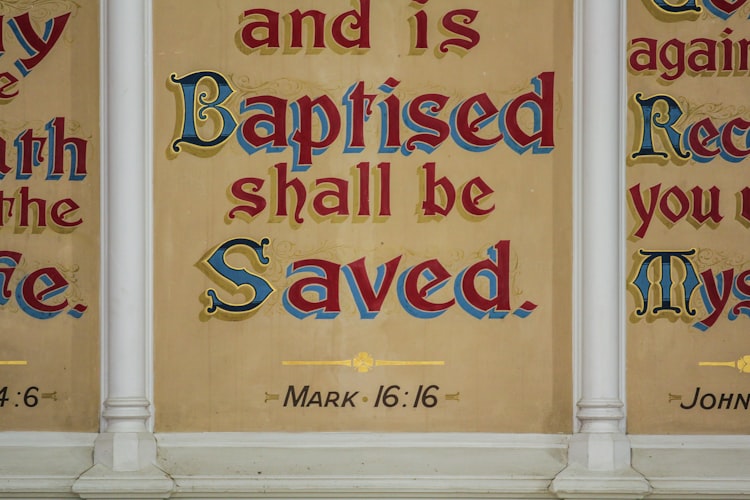Capital Punishment Is Antithetical to the Gospel (Part 2, Jesus’ Example)
The scene is stark. A woman caught in the act of adultery. A crowd of religious leaders, all men, have forced her to stand before them and Jesus. The law of Moses is clear: adulterers are to be executed.
Both the woman and Jesus are on trial. If Jesus says to go on with the execution, the religious leaders can squeal to the Romans, who (technically) must approve all capital punishments. If Jesus reduces the Mosaic death sentence, the religious leaders can accuse Jesus of disobeying Moses and thus God.
Jesus, in a move of rhetorical brilliance, suggests that they obey the Mosaic law to its fullest extent, demanding a faultless witness to be the executioner (“Let any of you who is without sin be there instead throw a stone”). This simultaneously makes the call for execution impossible to follow.
A Christian who calls for capital punishment is like someone picking up a stone and declaring, “I’m without sin; let me do it.”
Jesus, in Matthew 5, says that he has come to “bring the Law and the prophets to their natural conclusion” (my translation). In Matthew 19, Jesus admits that the law of Moses (the Torah) was given as an accommodation to people's hard and unprepared hearts. Paul, picking up on this theme, compares the Torah to a live-in nanny watching over unprepared children. It was delivered not by God-in-the-flesh, but by angels and mediators standing in for God.
This is all in contrast to Jesus, God-in-the-flesh, who set us free from the bondage of the law. The Old Testament principle of lex talionis (“Eye for eye, tooth for tooth,” Exodus 21:24, Deut. 19:21) limited overreaching punishments. In other words, punishments were to be no more than an eye for eye, a tooth for a tooth. It was intended to prevent abuses of the ancient justice system that often favored the rich over the poor, the powerful over the weak.
But it was not God’s final word on justice! God-in-the-flesh Jesus says, “You’ve heard it said, ‘Eye for eye, and tooth for tooth.’ But I tell you, do not resist an evil person” (Matthew 5:38).
Do you understand the enormity of what’s happening here? You have Jesus (God-in-the-flesh) correcting/fulfilling/bringing-to-its-natural-conclusion what the “God” of Exodus 21:24 says. The ethical statements of the Torah on crime, punishment, and eye-for-and-eye were not God’s final word on these issues. They were accommodations for people’s hard hearts. We must look to Jesus to hear what God-in-the-flesh says about these things.
A Christian who calls for capital punishment is like someone saying, “Yeah, Jesus got this one wrong. Let’s go back to Torah to get this right.”
One more. Jesus, amid a long and agonizing execution process, says, “Father, forgive my executioners, for they do not know what they are doing” (Luke 23:34). Jesus, of course, is a living example of His own teaching in Luke 6, seventeen chapters before. “Love your enemies, do good to those who hate you, bless those who curse you, pray for those who mistreat you.” Jesus didn’t give those commands merely for bumper stickers and t-shirts. Jesus had every intention of living them out.
The early church was insistent and clear on the call of Christians to follow the example of Jesus. “Whoever claims to live in him, must live as Jesus did” (1 John 2:6). We are to have the same mindset as Christ Jesus, who emptied himself of his privileges, even to the point of death on a cross (Philippians 2).
Jesus, unfairly executed (i.e., murdered by the state), had every right to call down legions of angels and prevent his death. Or he could have returned, post-resurrection, to exact justice on those who unjustly killed him (à la Gandhi 2)*. Instead, we get a Jesus who’s mistaken for a gardener, restores his relationship with his disciples, and keeps raiding everyone’s fridges.
A Christian who calls for capital punishment is like someone saying, “Jesus forgave those who committed crimes against him; but certainly, we’re not supposed to imitate Jesus in this, right?”
(Next post will be on the first three centuries of the church’s understanding of capital punishment)
- Far too many Christians believe that this is what the second coming of Christ will be like; that all the “love your enemies” crap will go out the window once Jesus returns. I have a sneaking suspicion that, just like Jesus’ first coming, many will be disappointed that Jesus is just as non-violent, non-coercive, and self-sacrificing as ever.



Member discussion